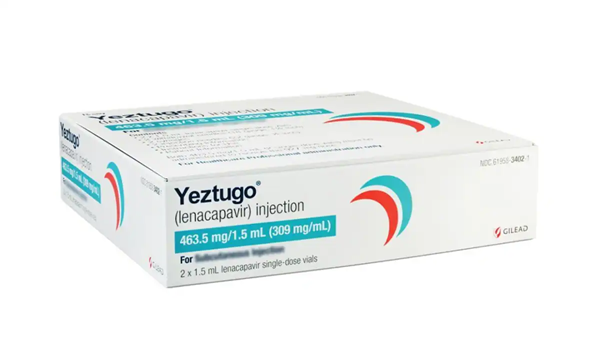
Reactions have continued to trail the approval of Yeztugo, a twice-yearly injectable medication for HIV prevention, as global health experts warn that its high cost could exclude millions of vulnerable people, especially in low-income regions, from accessing the groundbreaking treatment.
Accessibility concerns were raised by multiple experts during interviews with journalists over the weekend in Abuja.
According to Science Nigeria, the United States Food and Drug Administration (FDA) recently approved Lenacapavir, a long-acting injectable drug for HIV prevention. Administered only twice a year, Lenacapavir marks a major milestone in efforts to expand prevention options for populations at heightened risk of HIV infection.
In two pivotal clinical trials concluded in 2024, the injectable drug, marketed as Yeztugo by Gilead Sciences, proved remarkably effective in virtually eliminating new HIV infections when administered biannually. Its low-dose frequency is seen as a game-changer, offering greater convenience compared to existing options such as daily oral pre-exposure prophylaxis (PrEP) pills like Truvada and Descovy, or GSK’s Apretude, which requires bimonthly injections.
“This really will bend the arc of the epidemic as we roll this out globally,” said Gilead CEO, Daniel O’Day in an interview with CNBC, reflecting on the potential of the drug to revolutionise global HIV prevention.
However, the announcement of Yeztugo’s U.S. list price, $28,218 per person per year, sparked backlash from health leaders and HIV advocates around the world. In an interview with The New York Times, Gilead’s pricing disclosure drew swift criticism from activists who say the steep cost could make the drug inaccessible to those most in need, particularly in low-income countries and underserved communities.
A new paper published in The Lancet HIV estimates that a generic version of Lenacapavir could be produced for as little as $35–$46 annually, and potentially as low as $25 with high demand and volume, making it comparable to or even cheaper than current oral PrEP options.
UNAIDS executive director and United Nations under-secretary-general, Madam Winnie Byanyima while welcoming the FDA approval, called for urgent and decisive action on pricing and equitable access.
“This is a breakthrough moment. The approval of Lenacapavir is a testament to decades of public investment, scientific excellence, and the invaluable contributions of trial participants and communities,” she said.
According to her, Lenacapavir holds the promise of significantly reducing new infections, but only if it is priced fairly and made available to all who need it.
“It is beyond comprehension how Gilead can justify a price of $28,218. If this game-changing medicine remains unaffordable, it will change nothing,” Byanyima declared.
Renowned virologist and former President of the Nigerian Academy of Science, Prof. Oyewale Tomori also praised the scientific achievement but warned that it exposes a broader issue affecting the African continent.
“Until African nations take control of vaccine and drug production, these disparities in access will persist. We must invest heavily in our research institutions, biotechnology and pharmaceutical industries. Only through scientific self-reliance can we stop being left behind whenever medical breakthroughs occur,” Tomori stated.
Similarly, executive director of PrEP4All, Jeremiah Johnson stressed the urgency of ensuring access, particularly for high-risk groups in resource-limited settings.
“It’s not enough to have the science. We need that science in the hands of those who need it most,” Johnson said.
Gilead, in response to concerns, has pledged to reduce out-of-pocket costs to zero for eligible insured individuals in the U.S. through copay savings and will offer free access for qualifying uninsured persons. The company expects broad insurance coverage for Yeztugo, like that of other HIV prevention drugs.
Notably, Lenacapavir is already approved for HIV treatment under the brand name Sunlenca, which carries a U.S. list price of over $42,200 per year.
To increase global access, Gilead has licensed six generic manufacturers to produce low-cost versions of Lenacapavir for distribution in 120 low- and lower-middle-income countries. The company has also committed to supplying doses for up to two million people at no profit, ahead of the availability of generic alternatives.
“HIV knows no boundaries,” Gilead said in a statement, reaffirming its commitment to equitable access and health justice.
While daily PrEP pills have existed for over a decade, uptake in many communities has been limited by stigma, inconvenience, and adherence challenges, especially outside the demographic of white men who have sex with men.
As Gilead prepares for Yeztugo’s global rollout, public health advocates are urging bold and inclusive strategies to ensure the innovation does not become another symbol of inequity, but rather a transformative solution that reaches those most affected by the HIV epidemic.

